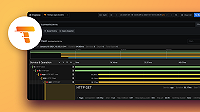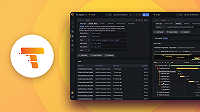This is documentation for the next version of Grafana Tempo documentation. For the latest stable release, go to the latest version.
Deploy Tempo using Docker Compose
The example directory in the Tempo repository provides a collection of docker-compose examples with different configurations. Refer
to the readme in this folder for more information.


